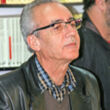Bilbao-New York-Bilbao
Description
On a transatlantic flight between Bilbao and New York City, a fictional version of Kirmen Uribe recalls three generations of family history—the inspiration for the novel he wants to write—and ponders how the sea has shaped their stories.
The day he knew he was going to die, our narrator’s grandfather took his daughter-in-law to the Fine Arts Museum in Bilbao, the de facto capital of the Basque region of northern Spain, to show her a painting with ties to their family. Years later, her son Kirmen traces those ties back through the decades, knotting together moments from early twentieth-century art history with the stories of his ancestors’ fishing adventures—and tragedies—in the North Atlantic Ocean. Elegant, fluid storytelling is punctuated by scenes from Kirmen’s flight, from security line to airport bar to jet cabin, and reflections on the creative writing process.
This original and compelling novel earned debut author Kirmen Uribe the prestigious National Prize for Literature in Spain in 2009. Exquisitely translated from Basque to English by Elizabeth Macklin, Bilbao–New York–Bilbao skillfully captures the intersections of many journeys: past and present, physical and artistic, complete and still unfolding.
Bilbao–New York–Bilbao is the second book commissioned for the Spatial Species series, edited by Youmna Chlala and Ken Chen. The series investigates the ways we activate space through language. In the tradition of Georges Perec’s An Attempt at Exhausting a Place in Paris, Spatial Species titles are pocket-sized editions, each keenly focused on place. Instead of tourist spots and public squares, we encounter unmarked, noncanonical spaces: edges, alleyways, diasporic traces. Such intimate journeying requires experiments in language and genre, moving travelogue, fiction, or memoir into something closer to eating, drinking, and dreaming.
More Details
9781566896498
Similar Titles From NoveList
Similar Authors From NoveList
Published Reviews
Publisher's Weekly Review
Uribe returns to English-language readers after the 2007 poetry collection Meanwhile Take My Hand with a seamlessly digressive meditation on a writer's family and Spanish history. The narrator, an author named Kirmen Uribe, reflects on his plans to write a novel based on his grandfather, Liborio, while en route from Bilbao to New York in 2008. Kirmen's inspiration comes in part from the name of Liborio's boat, Dos Amigos, which is something of a mystery given that Liborio had no friends. While on the plane, Kirmen recounts visits with his relatives and their stories of the Spanish Civil War, and of traveling to meet other writers. Further tangents include descriptions of his uncle's work on a Basque dictionary, a fellow airplane traveler reminding him of a movie he enjoyed with his teenage stepson, and a story of an enslaved person shipped from the U.S. to Denmark to settle a debt in the 19th century. Uribe's transfixing Sebaldian anecdotes take the reader down a series of rabbit holes and end up piecing together a memorable family portrait. It adds up to a powerful work of autofiction. Agent: Maria Cardona, Pontas Agency. (Aug.)
Publishers Weekly Reviews
Uribe returns to English-language readers after the 2007 poetry collection Meanwhile Take My Hand with a seamlessly digressive meditation on a writer's family and Spanish history. The narrator, an author named Kirmen Uribe, reflects on his plans to write a novel based on his grandfather, Liborio, while en route from Bilbao to New York in 2008. Kirmen's inspiration comes in part from the name of Liborio's boat, Dos Amigos, which is something of a mystery given that Liborio had no friends. While on the plane, Kirmen recounts visits with his relatives and their stories of the Spanish Civil War, and of traveling to meet other writers. Further tangents include descriptions of his uncle's work on a Basque dictionary, a fellow airplane traveler reminding him of a movie he enjoyed with his teenage stepson, and a story of an enslaved person shipped from the U.S. to Denmark to settle a debt in the 19th century. Uribe's transfixing Sebaldian anecdotes take the reader down a series of rabbit holes and end up piecing together a memorable family portrait. It adds up to a powerful work of autofiction. Agent: Maria Cardona, Pontas Agency. (Aug.)
Copyright 2022 Publishers Weekly.






























